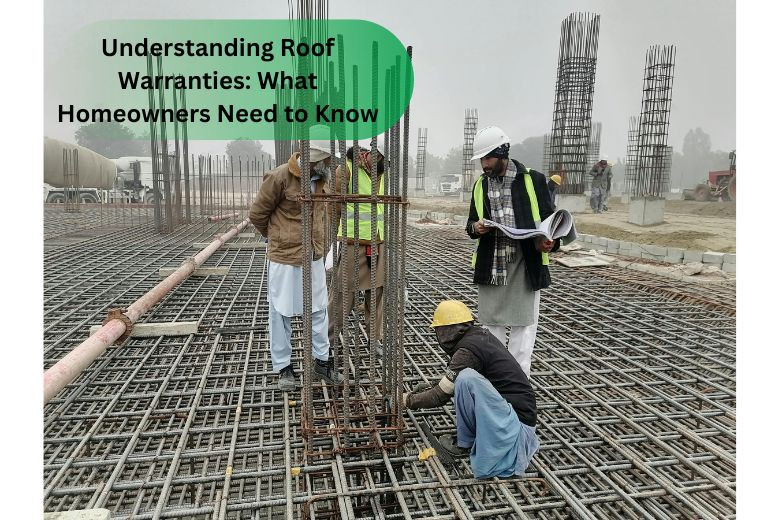Understanding Roof Warranties: What Homeowners Need to Know
Posted on August 06, 2024 by Admin

Understanding a roof warranty is very critical during a new roof installation or when reroofing for the protection of this essential investment and allowing for long-term peace of mind. Knowing the finer details will certainly give you quite an edge when making your decisions and avoiding probable issues later. Here is what every homeowner needs to know about a roof warranty.
Types of Roof Warranties
-
Manufacturer's Warranty
The manufacturer's warranty covers defects in the roofing materials themselves. Most of these kinds of warranties include coverage regarding material failure, early wear, and manufacturing defects. Manufacturer's warranties usually have a specified term, normally running from 20 to 50 years depending on the quality of the materials.
-
Workmanship Warranty
Workmanship warranties address the deficiencies of the installed roofing system. It is given by the contractor to guarantee the installation has been done correctly in light of the industry's conventional standard workmanship. Basically, workmanship warranties usually run from 1-10 years and are important to protect against mistakes made at installation.
-
Extended or Enhanced Warranty
Extended or enhanced warranties will combine both the manufacturer and the contractor's coverage. These warranties can include added protection, benefits, longer time periods, and higher limits of coverage. They often involve added services to the coverage, such as roof inspections or even maintenance. They are often available for an increased price and provide more peace of mind.
Must Read : Choosing the Right Roof Color: Aesthetic and Practical Considerations
Key Points About Roof Warranties
-
Coverage Details
One needs to know the details of what is covered under a roof warranty. Go through the warranty document to find out exactly what is covered against, say, leakage or material defect or any problem with the labor. Be aware of exclusions or limitations that can lower your protection, for instance, damages incurred due to adverse weather conditions or poor maintenance.
-
Transferability
Some roof warranties are transferable, and this could be a great feature if you're going to sell your home. Transferable warranties automatically make any new homeowner an heir to the warranty. This adds to more appeal and value that can increase your property. It's important to always look at the fine print in a warranty to see if it's transferable and if any fees or requirements will be applied.
-
Maintenance Requirements
Most of the warranties that exist for roofing specify a certain kind of maintenance to be followed if the warranty is to remain valid. This can include periodic inspections, cleaning, or other repairs that might be necessary in the circumstances. Unless such conditions are followed, it could end up being considered an invalid warranty; therefore, one must know and abide by the given maintenance guidelines.
Faqs
-
1. What should I do if I find something wrong with my roof while it's still under warranty?
If you happen to notice a defect in your roofing, which is still under warranty, notify your roofing contractor or manufacturer for the processing of your claim. Check your warranty terms on how claims should be filed. This keeps you clear of probable complications by making sure the problem is solved quickly.
-
2. Can a roof warranty be transferred to a new homeowner?
Most roof warranties are transferable, though the process and conditions vary from one manufacturer or contractor to another. Your warranty document should state the stipulations on transferability. Requirements and fees may apply. This will be an excellent selling point to the buyers of your home.
-
3. What maintenance is required to keep my roof warranty valid?
This will help to keep your roof valid in line with the warranty requirements. It usually includes periodic inspections and cleaning, coupled with minor repairs that are due for timely execution. You should review warranty terms so that you are conversant with specific maintenance requirements and ensure that you can abide by them to avoid circumstances of invalidating a warranty.
Recent Post
- Top Plumbing Service Providers in Arizona, USA
- Top 10 Electrician Service Providers in Alabama, USA
- Top 20 Roof Repair Service Providers in Alabama, USA
- The Role of Roof Insulation in Energy Efficiency: Tips and Tricks
- Understanding Roof Damage from Wildlife and How to Prevent It
- How to Choose the Best Roofing Contractor for Emergency Repairs
- Roofing Maintenance for Historic Homes: Preserving Architectural Integrity
- The Importance of Proper Attic Ventilation for Roof Health
- How to Identify and Prevent Roof Mold and Mildew
- The Best Practices for Removing Snow from Your Roof